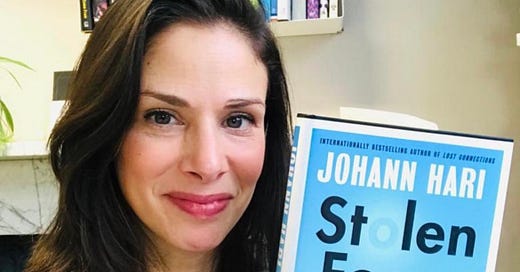Rethink Book Club: Stolen Focus
A relevant book as we try to figure out where and how to focus our attention
Rethink is funded by direct subscriptions from readers like you. So if you enjoy and value the content, becoming a paying member (here’s the additional benefits you will get) of our growing community costs around £1 per week.
This week’s Rethink Book Club recommendation is below. But, quickly, I wanted to touch on what else we’ve been talking about in th…
Keep reading with a 7-day free trial
Subscribe to Rethink with Rachel to keep reading this post and get 7 days of free access to the full post archives.




